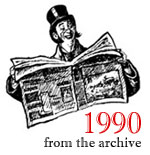
Vatican II & Scholasticism
IS NEO-THOMISM OBSOLETE?
Until Vatican Council II, scholasticism, or, to speak more precisely, neo-scholasticism or neo-Thomism, had been for more than a century the officially established and approved philosophy of the Catholic Church. It was regularly used by theologians as a resource or instrument for theological inquiry and explanation. Within a year or two after the council, the case was quite otherwise. Many sophisticated Catholics looked upon scholasticism as obsolete.
Was the council responsible? As we shall see, the council’s explicit teaching on the subject would seem to indicate that it was not. Nevertheless I think that Vatican II did give some occasion for this intellectual revolution.
In the first place, the impulses and directives given by Pope John XXIII were unfavorable to the reigning scholasticism. This pope had been nuncio in Paris at the time when Pius XII issued his encyclical Humani Generis, directed against the nouvelle theologie. His plans for the council seem to have been partly inspired by the French Dominican and Jesuit theologians who had been suspect under Pius XII.
According to Pope John’s instructions the council was to be, in the first place, pastoral in character. The term “pastoral” could have several meanings, but as used by John XXIII it implies a practical orientation toward the Christian life and a lack of concern with the fine points of speculation as developed in late scholasticism. This orientation favored a certain liberty in speculation. The pope did not want new restrictive teachings, and he especially resisted the adoption of new dogmas under pain of anathema. He popularized the maxim, “Unity in what is necessary, freedom in what is doubtful, and charity in all matters.”
You May Also Enjoy
If one who contemplates shares in God's life, contemplation overflows in the free gift of self. Thus, indeed, it shows that it is of God.
The effort of the Church to come to terms with the modern world too often assumes that contemporary culture is neutral when, in fact, it is closed to the transcendent.
Man is part of the world and also separate from it, embedded in a spiritual hierarchy that stretches infinitely beyond what we can see, touch, and hear.

